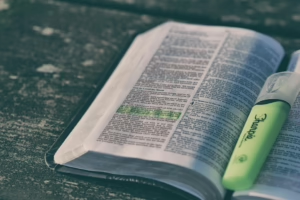Shedding Light on Beauty Standards: The Impact of Beauty Scales
Introduction
Beauty is often portrayed as a universal concept, yet the standards associated with it are anything but homogeneous. Across cultures and epochs, beauty ideals have fluctuated, driven largely by societal norms, media influences, and historical contexts. In this landscape, beauty scales—metrics and indices used to categorize and judge physical appearance—have emerged as critical tools. This article aims to explore the implications of beauty scales on individual self-esteem and societal perceptions, and their influence on contemporary beauty standards.
Defining Beauty Standards
Historical Context
Beauty standards have been shaped by numerous factors. In ancient cultures, such as those of the Greeks and Egyptians, beauty was often intertwined with notions of health, fertility, and social status. For instance, the Greeks idealized symmetrical features and proportionate body shapes, beliefs reflected in their art and literature. Conversely, the Middle Ages saw a shift with a preference for fuller figures symbolizing wealth and nourishment.
Modern Influences
In contemporary society, beauty standards are predominantly influenced by Western media, including film, television, fashion, and social media platforms. The rise of celebrity culture has further exacerbated these ideals, with figures such as models and influencers setting benchmarks for desirability. The impact of these representations can be profound, leading to both positive and negative perceptions of self-worth based on adherence to these standards.
The Emergence of Beauty Scales
What are Beauty Scales?
Beauty scales can be understood as various methodologies or ratings that attempt to quantify beauty based on specific criteria—facial symmetry, skin quality, body type, and more. These scales can range from simplistic numerical ratings to complex algorithms developed by cosmetic brands and tech companies.
Types of Beauty Scales
-
Facial Symmetry Index: This index measures the symmetry of facial features, which studies show often correlates with perceived beauty.
-
Body Mass Index (BMI): Widely used in health contexts, BMI has been repurposed within beauty discussions, impacting perceptions of body weight and fitness.
-
Skin Quality Assessments: Technologies such as AI-driven skin analysis apps provide scores based on factors like texture and pigmentation.
-
Social Media Metrics: Likes and comments can serve as informal beauty scales, influencing users’ self-esteem and body image.
The Psychological Impact of Beauty Scales
Self-Concept and Self-Esteem
Beauty scales can significantly shape individual self-concept and self-esteem. On one hand, individuals who perceive themselves as meeting beauty standards may experience enhanced self-esteem and confidence. On the other, those who feel they fall short can suffer from negative body image, leading to issues such as anxiety, depression, and eating disorders.
Social Comparison Theory
The social comparison theory posits that individuals evaluate themselves based on comparisons to others. Beauty scales amplify this dynamic, as they provide explicit metrics against which individuals assess their appearance. Platforms like Instagram and TikTok, where beauty metrics often manifest in the form of likes and comments, can intensify this comparison.
Case Studies and Research Findings
-
In a study by Fardouly et al. (2015), women exposed to beauty-related social media content demonstrated lower body satisfaction compared to those not exposed. This indicates a direct correlation between the consumption of beauty scales and body image perception.
-
A longitudinal study by Tiggemann and Slater (2014) found that increased exposure to beauty ideals via social media was linked with declining self-esteem among adolescents.
Societal Implications of Beauty Scales
Cultural Homogenization
One of the most concerning implications of standardized beauty scales is cultural homogenization. Hypothetical “ideal” beauty metrics often emphasize Eurocentric features—traits such as straight hair, fair skin, and specific body shapes. This can marginalize and erase diverse cultural identities, pushing individuals to conform to narrow beauty ideals.
The commodification of Beauty
Facial symmetry and other beauty scale metrics have led to the commodification of beauty. Brands often leverage these ideals, marketing products that promise to enhance or achieve these standards. This not only perpetuates beauty myths but also creates a multi-billion-dollar industry reliant on insecurities.
Unrealistic Expectations
Beauty scales can foster unrealistic expectations regarding appearance. When individuals feel constant pressure to conform to beauty metrics, it can lead to dissatisfaction and a relentless pursuit of an unattainable ideal. This has broader societal implications, including increased consumerism and the normalization of surgical enhancements.
Resisting Beauty Scales: A Movement Towards Body Positivity
The Body Positivity Movement
Increasingly, there is a growing resistance to the rigid beauty standards defined by scales. The body positivity movement, initiated to promote acceptance of all body types and appearances, has gained significant traction, particularly on digital platforms. This movement challenges prevailing beauty norms by embracing diversity and encouraging individuals to love their bodies irrespective of beauty scale metrics.
The Role of Media Literacy
Media literacy plays a crucial role in combating the negative effects of beauty scales. By fostering critical thinking about media portrayals of beauty, individuals can better navigate the impact of these representations on their self-perception. Educational initiatives focusing on media literacy can equip people with the tools to challenge the unrealistic expectations set by beauty scales.
Promoting Inclusive Beauty Standards
Adopting inclusive beauty standards that celebrate diversity is vital for fostering a healthier relationship with beauty. Initiatives aimed at showcasing a range of body types, skin colors, and features can help shift the narrative surrounding beauty. Brands and influencers have a significant role to play in promoting inclusivity, as their messages can either reinforce or challenge harmful beauty scales.
Conclusion
The impact of beauty scales on societal standards of beauty is profound and pervasive. While these scales can provide a framework for understanding beauty, they can also lead to damaging societal pressures and unrealistic expectations. To combat these effects, embracing body positivity, promoting media literacy, and advocating for inclusive beauty standards are essential steps. As we move forward, redefining beauty to include a range of expressions will foster greater acceptance and self-love among individuals across all walks of life.
References
- Fardouly, J., Diedrichs, P. C., Vartanian, L. R., & Halliwell, E. (2015). Social Comparisons on Social Media: The Impact of Instagram on Young Women’s Body Image. International Journal of Eating Disorders, 48(2), 189-193.
- Tiggemann, M., & Slater, A. (2014). NetGirls: The Internet, Girls and Self-Esteem. International Journal of Internet Science, 9(1), 1-16.
This article provides a comprehensive overview of beauty standards and scales, shedding light on their implications for personal and societal contexts. It outlines historical perspectives, psychological impacts, societal implications, and movements resisting harmful beauty norms. Let me know if you would like to explore specific sections more deeply or have additional questions!


























Add Comment